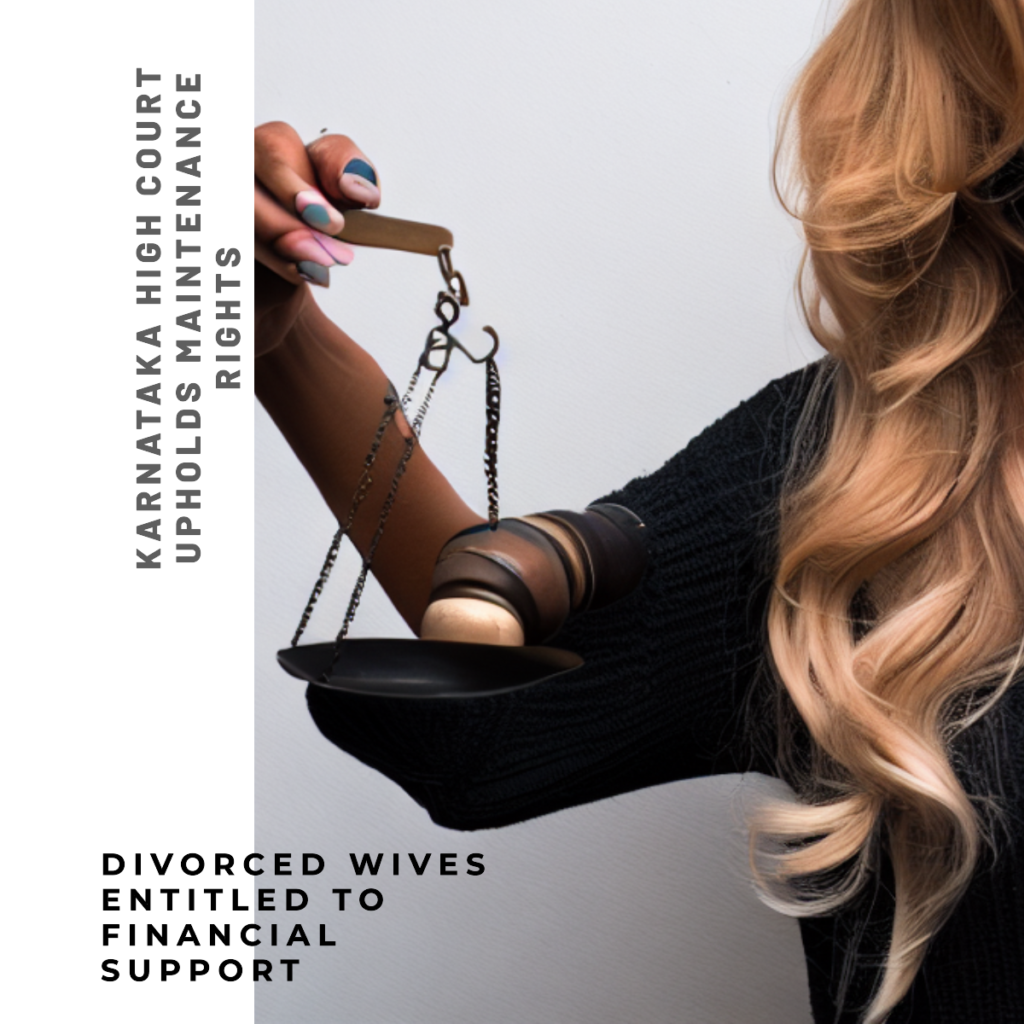A Landmark Karnataka High Court Judgment in respect of Maintenance Rights for Divorced Wives

In a significant legal development, the High Court of Karnataka, in its judgment dated January 29, 2014, addressed a crucial question pertaining to maintenance rights for divorced wives. The case of Smt. Parvatevva (also known as Roopa) vs. Channabasappa highlighted the complex interplay of matrimonial law, particularly in situations where the wife’s desertion leads to the granting of divorce.
Background:
Smt. Parvatevva had filed a petition under Section 125 of the Code of Criminal Procedure, 1973 (Cr.P.C.), seeking maintenance from her husband, Channabasappa. The trial court had ruled in her favor, granting her a monthly maintenance allowance of Rs. 500, effective from June 14, 2006.
However, Channabasappa was not content with this decision and appealed to the Sessions Judge (Fast Track), Haveri. The Sessions Judge reversed the trial court’s order, leading to Smt. Parvatevva’s subsequent appeal to the High Court of Karnataka.
Key Legal Question:
The central issue at hand was whether a divorced wife is entitled to maintenance when the divorce decree was based on her desertion of the husband. The High Court delved into this matter with a keen legal eye.
Crucial Legal Interpretations in Maintenance Rights for Divorced Wives:
Transitioning into the heart of the matter, the High Court explored various legal interpretations to arrive at its conclusion. It acknowledged that all the circumstances listed in Section 125(4) of Cr.P.C. inherently presuppose the existence of a matrimonial relationship.
The High Court then emphasized a pivotal legal stance: even when the divorce resulted from her desertion of the husband, it does not preclude a divorced wife from claiming maintenance under Section 125 of Cr.P.C. It underlined that the husband can challenge her claim only on other grounds mentioned in Section 125(4), such as her involvement in adultery or remarriage.
Legal Precedent:
Highlighting legal precedent, the High Court referenced an important Supreme Court judgment that clarified the rights of divorced wives. The judgment in question asserted that the provisions of Section 125 of Cr.P.C. Are meant to protect women and children, falling within the constitutional framework of Article 15(3) and Article 39.
The High Court further quoted the Supreme Court. Which stated that a divorced wife can claim maintenance as long as she is unable to support herself & has not remarried. Even if the divorce granted due to desertion by the wife. She retains the right to seek maintenance under Section 125, Cr.P.C.
Conclusion of Maintenance Rights for Divorced Wives:
Transitioning towards its conclusion, the High Court criticized the Sessions Judge for not comprehensively analyzing the legal intricacies. Furthermore, the Court expressed dissatisfaction with the Sessions Judge for failing to consider the Supreme Court’s judgment in detail.
In a decisive move, the High Court allowed Smt. Parvatevva’s revision petition, overturning the Sessions Judge’s ruling and reinstating the trial court’s order, which granted her maintenance. The Court also permitted her to withdraw the litigation expenses deposited.
In Summation:
This judgment from the High Court of Karnataka serves as a beacon of clarity in the realm of matrimonial law. It reaffirms the rights of divorced wives to claim maintenance under Section 125 of Cr.P.C.,. Even in cases where divorce was granted due to their desertion, provided other disqualifying factors do not apply. This legal decision, fortified by precedent, underscores the judiciary’s commitment to upholding the rights of vulnerable sections of society, particularly women and children.
At Patil Legal Solutions, our commitment is to keep you well-informed about crucial legal developments and to offer expert guidance on family and matrimonial law matters. Additionally, if you have any questions or require legal assistance, please don’t hesitate to reach out to our highly experienced team of legal professionals.



Leave a Reply